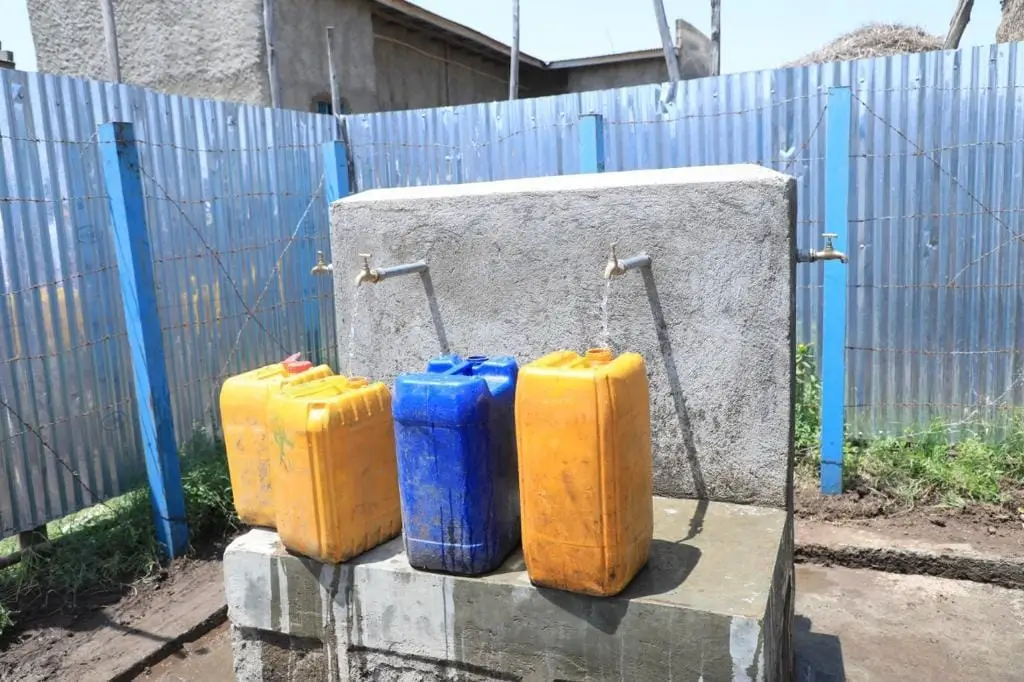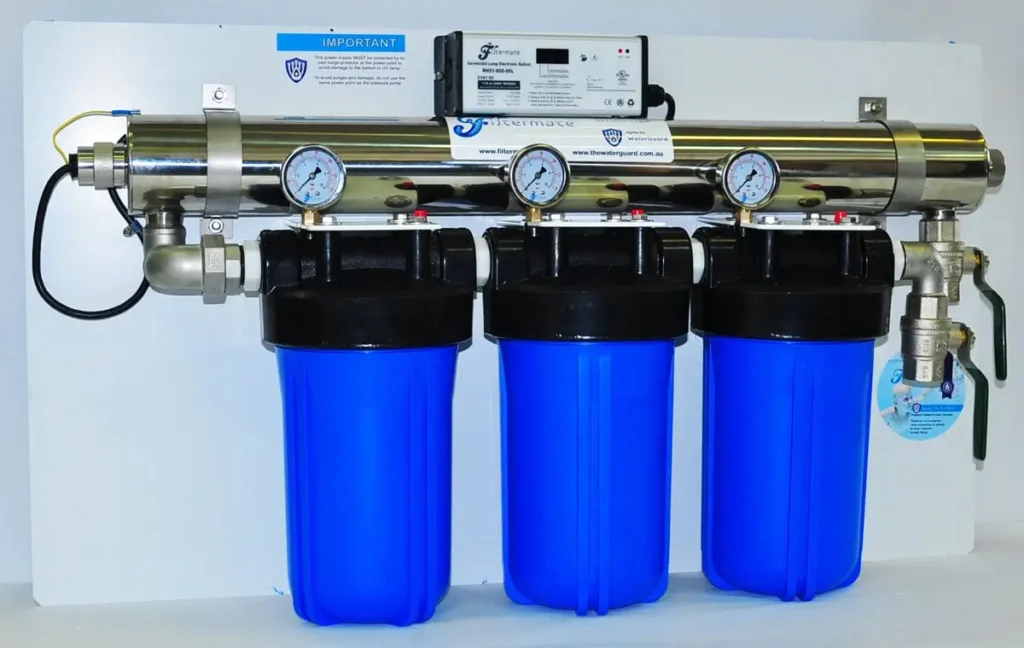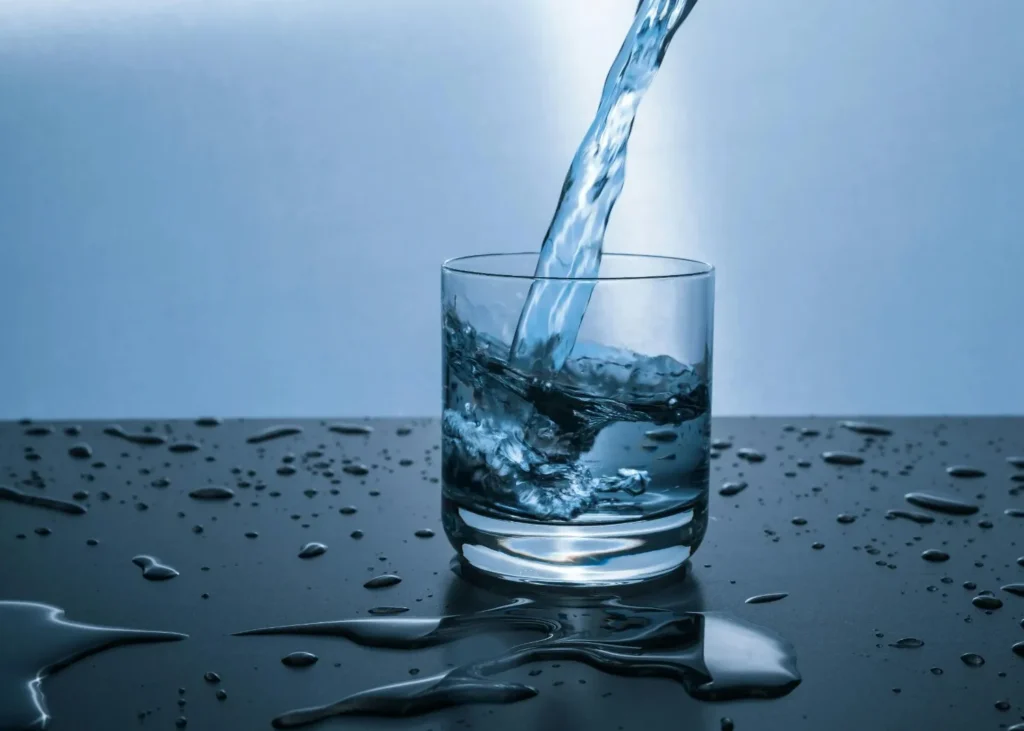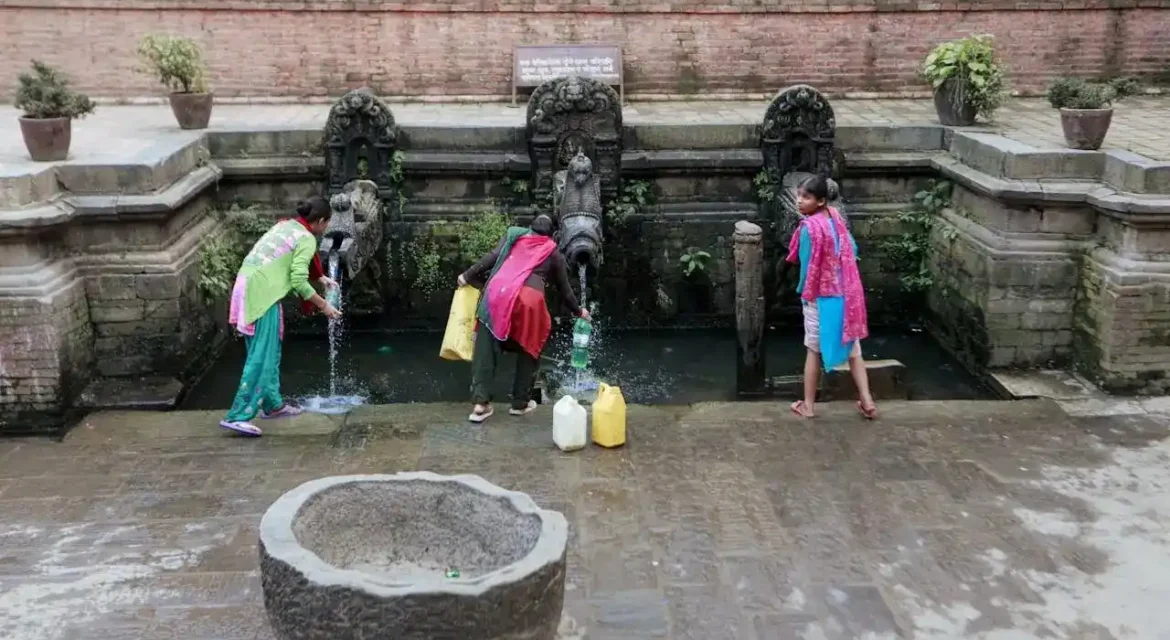
A Guide to Address the Challenges of Accessing Quality Water in Kathmandu and Other Major Cities in Nepal
- Water Filtration Systems
- April 18, 2025

Kathmandu’s thirst intensifies each year. Urbanization at high speed stresses the valley’s finite supply. Seasonal droughts constrict water availability. Now, over 1.7 million residents are subject to erratic taps. Dripping pipes waste precious litres along the way before they have even reached homes. Illegal hookups jeopardize pressure and purity.
Across Nepal, water scarcity affects cities like Kathmandu, Pokhara, and Biratnagar. Climate fluctuations magnify monsoon patterns. Rising demand overwhelms supply. Families wait for hours, sometimes days, for safe drinking water. The majority turn to water trucks or bottled water. The additional cost buries family budgets.
But the reliability of access matters to health, productivity, and dignity. That is why point-of-use water purifying Nepal products are essential. Filters and ionizers offer tap safety.
But for those ready to pay money for long-term convenience, it’s easy to order water filters and purifiers from SC Incorporated. Our USA No. 1 Brand products are US FDA & Medical Grade Approved.
These devices deliver improved alkalized pH water with minimal upkeep. When you look at infrastructure, community action, and technology, keep in mind that small household devices can transform life on a day-to-day basis.
By the end of this, you will understand how every household in Kathmandu can access clean water and lower medical risk, while contributing to bigger, citywide solutions.
Urban Infrastructure Challenges: Accessing Quality Water in Kathmandu’s Aging Distribution Networks
Kathmandu Upatyaka Khanepani Limited (KUKL) runs the city mains. But the majority of pipes are decades old. Corrosion and wear cause frequent bursts. Distribution networks in Kathmandu have minimal maintenance budgets. Repairs lag behind breakdowns. Supply in some areas dwindles to a few hours a day.
Leaky mains offer access for contaminants. Sewage and soil seep through cracks. Domestic homes are susceptible to microbial contamination with every drop. To fill in gaps, water trucks make the rounds in neighbourhoods. They are expensive with high prices. Their water doesn’t go through rigorous water purification processes.
Illegally tapped connections further weaken pressure. Some get muddy, discoloured water. Families filter twice or thrice before drinking.
Good water also goes bad in old pipes. Flushing networks is time and money-intensive. Until infrastructure improves, point‑of‑use devices will continue to be significant.
Installing a water purifier or an alkaline water ionizer in Nepal is useful. Basic sediment filters trap visible contaminants. UV lamps kill bacteria at the faucet.
You can also order water filters and purifiers from SC Incorporated. The 32‑point quality assurance process and low-power design make them ideal for Nepali homes. With focused repairs and reliable home equipment, cities can close the supply gap to safe drinking water.
Mastering Contamination: Accessing Clean Water Despite Pollution
Pollution within the Kathmandu Valley is a battle that is being lost. Brick kilns and factories release heavy metals. Peri-urban agricultural pesticide runoff poisons groundwater. Monsoon flooding stirs up murky waters. Traditional wells become cloudy. Residents contract arsenicosis and other illnesses.
Local tests can detect lead, arsenic, and E. coli. But laboratories are not accessible in most homes. DIY kits help, but only detect some of the pollutants. Microbial contamination is the priority issue for public health water quality. Gastrointestinal illness reaches its peak after floods. Clinics report alarming spikes in diarrhoea cases.
Point-of-use water filtration systems combine sediment pre-filtration and activated carbon. Carbon removes organic chemicals and chloramines. UV sterilization inactivates pathogens.
Chemical ionizers, such as those available from SC Incorporated, control pH without adding compounds. They dispense naturally pure water pH 2.5 to 11.5. You can also obtain water filters and purifiers from SC Incorporated to have a US FDA & Medical Grade Approved Device installed at home. Their leading alkalized water machine ensures safe, balanced water.
Health and Economic Impacts of Accessing Quality Water
Unsafe water affects finance and health. Waterborne disease results in clinic visits. Treatment costs mount rapidly. Lost work days cut family income.
Giardia, cholera, and typhoid remain common in high-risk communities. Arsenic poisoning causes long-term illness. Prevention, however, is frequently less expensive than a cure. Bottled water sales have exploded. But single-use plastics burden the environment and family budgets. Many families spend up to 10 percent of their income on safe water.
Upgrading to home water purifying Nepal equipment is a good investment. One initial purchase replaces dozens of monthly shipments of bottled water. Ultimately, savings cover the device and installation. Hospital visits are avoided by Medical Grade Approved filters. Healthy children miss less school. Parents stay productive at work. Better community health overall.
SC Incorporated’s alkaline water ionizers save power usage compared to competitors. Their 32‑point quality assurance system guarantees performance. When you buy water purifiers and filters at SC Incorporated, you are buying long-term health and economic security. Children and their families feel secure, knowing that their drinking water is clean and also affordable.
Community-Led Initiatives: Accessing Quality Water Through Local Solutions
Years before the introduction of modern filters, Nepali villages relied on two principal elements: sand and gravity. Local stone reservoirs were employed in communal sand‑gravity systems.
Jharas (stone spouts) provided water for centuries. Neighbourhood cooperatives maintain these low-cost traditional filtration systems. A group of volunteers in Lalitpur renovated three jharas. They added layers of sand to trap sediment. Cleaning systems weekly keeps them operational.
These social water management systems build social capital. Citizens alternate in upkeep and paying for maintenance. Everyone benefits from the collective surveillance. But these projects only address a fraction of the demand. Urban expansion typically outpaces local initiatives. Rainwater harvesting Kathmandu projects can complement jharas.
That’s where point‑of‑use equipment fills the gap. Families still need stable taste and pH control. An alkaline water ionizer provides another health benefit. You can buy water filters and purifiers from SC Incorporated to supplement local remedies. Their medical-grade equipment will integrate effortlessly after preliminary sand filtration.
Technology and community interventions form layers of protection. The hybrid approach ensures every drop is as secure as possible before reaching the glass.
Government Regulations and Water Management in Nepal
Nepal’s National Water Resources Strategy is the master plan for water management. Urban supply in the valley is controlled by KUKL. Safety regulations are mandated by the Department of Water Supply and Sewerage.
Loopholes in enforcement still exist. Most small townships lack sufficient finances for complete compliance. Public–private partnerships can be the solution. Pilot schemes with NGOs have already provided certified water filters to Nepal at subsidized rates. These schemes are pilot models for large-scale implementation.
Government policy determines upper contaminant limits. Monitoring, though, is uneven outside large centres. Rural-urban migrants are therefore at risk. Policy reforms emphasize decentralization presently. Local water user associations gain powers to manage community schemes. They can also authorize private devices like SC Incorporated ionizers.
Such devices become qualified for government authorization by complying with Medical Grade Approved standards. Partial rebates go to families under new subsidy plans.
When tested technology is favoured by policies, coverage expands. Families can obtain good water in Kathmandu both from public sources and certified home systems.
Technological Advances: Obtaining Quality Water through Water Filters and Purifiers
Existing point-of-use treatment uses more than one stage. Sediment filters capture large particles first. Odours and organic chemicals are eliminated by activated carbon.
Reverse osmosis systems remove heavy metals. Pathogen inactivation, chemical-free, via UV lamps. Each layer senses a specific risk.
Water filters in Nepal come in varying capacities. Counter units in apartments. Under-sink options for larger households. Installation in a mere three hours. Alkaline water ionizer Nepal technology offers an extra something. By being able to split water into acidic and alkaline flows, it boosts pH naturally. No chemicals needed.
SC Incorporated’s Chanson alkaline water ionizer machines range from 2.5 to 11.5 pH. They use very little power, and you save money every month. All units undergo a very rigorous 32‑point quality assurance process through nine levels of inspection. That ensures consistent performance and 100 percent safe water every time. To take advantage of these benefits, order water filters and water purifiers from SC Incorporated. Their USA No. 1 Brand recognition and US FDA approval guarantee the highest quality.
Home-Based Innovations
Alkalized water offers health advantages beyond mere safety. More alkaline water can help digest food and counteract acidity. Antioxidant effects are implied in some studies.
Installation of an alkaline water ionizer is straightforward. Place the machine on your countertop. Connect to the faucet with a rapid-attach hose. Plug into any standard outlet. Maintenance is just a simple cartridge replacement every half year. SC Incorporated employs longer-lasting filters because of medical-grade materials. Replacement is simple.
Electricity usage remains minimal. Compared to other brands, Chanson machines use up to 30 percent less power. That puts less strain on your utility bill.
To boost pH levels without the use of chemicals, these ionizers are ideal. They produce naturally treated water through electrolysis. Nepali homes can seamlessly integrate these systems into everyday life. Fill bottles, cook rice, boil tea—all with rejuvenated water. Ready to transform your domestic water? Simply order water purifiers and water filters at SC Incorporated. Get the best alkalized water machine under the USA No. 1 Brand promise.
Sustainable Strategies
Rainwater harvesting systems harvest monsoon surplus. Roof runoff is channelled into storage tanks by gutters. Debris is washed out by first‑flush diverters.
Mesh screen cisterns keep mosquitoes out. Solar power pumps water for irrigation and toilet purposes. This approach takes pressure off the municipal supply. Collected rainwater is utilized by families for domestic work, while treated water is conserved for consumption.
Blending rainwater harvesting with point‑of‑use treatment is safe. A simple sediment filter removes residual particles. Then, pass water through an alkaline ionizer. These solutions function year in and year out. They reduce costs and environmental footprint at the same time.
SC Incorporated products are an excellent addition to rainwater systems. Their medical‑grade filters handle any remaining organic impurities. To maximize the benefits, don’t forget to purchase water filters and purifiers from SC Incorporated when installing your catchment. Our USA No. 1 Brand quality converts rain into pure, high‑pH water.
Ensuring Long-Term Success in Accessing Quality Water
Availability of clean water in Kathmandu requires cooperation and patience. Investment in infrastructure, policy reform, and community cooperation is key. But your home can be a part of changing that. Investing in a top-quality unit is a real step.
SC Incorporated’s water filters and purifiers integrate cutting‑edge technology with time-tested security. Their US FDA & Medical Grade Approved systems receive a 32-point QA review. Chanson water ionizers create a chemical-free natural pH boost. They operate more effectively and are less costly to maintain.
Take these tangible next actions:
- Inspect the faucets and pipes in your home for leaks that are not hard to miss.
- Test the water in your home for chemical and microbial contamination.
- Research device models and select the model from SC Incorporated that suits you.
- Purchase water filters and water purifiers through SC Incorporated on the internet or from our physical location in Tripureshwor, Kathmandu.
By investing in SC Incorporated, you invest in your family’s health, the strength of your community, and Nepal’s future. Let’s bring clean, pure water to become the new standard in Kathmandu—one home at a time.
Related Post
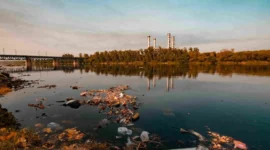
- 23 May 2025
- 0
- 0
Common Contaminants in Kathmandu’s Water and How to Remove Them
Kathmandu’s water is subject to a complex mixture of pollutants. Sediments and chemicals from the
Read More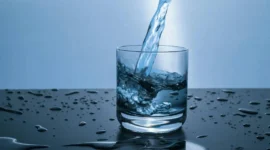
- 11 Apr 2025
- 0
- 0
How Does Rainy Season Affect the Quality of Your Drinking Water?
In Nepal, the rainy season does more than just usher in wet weather—it ushers in particular problems
Read More
